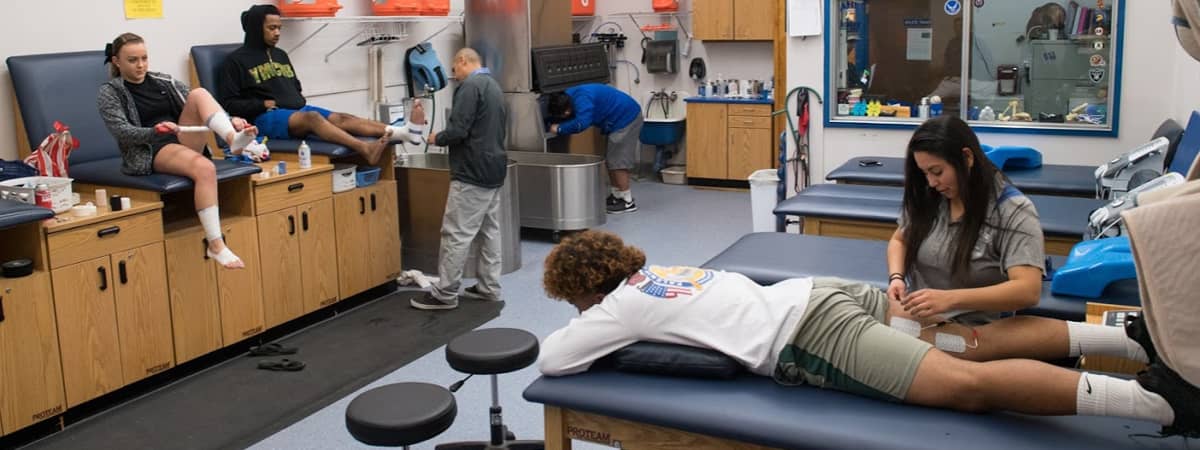Are you passionate about health and fitness? If you want to learn how to use rehabilitation techniques to help people recover from injuries, the sports medicine program might be the perfect fit for you!
Allan Hancock College’s sports medicine program is designed to provide students with the skills and knowledge necessary to pursue a career in athletic training, exercise science, physical therapy, and other sports medicine related fields. The program emphasizes identification, prevention, evaluation, treatment, and rehabilitation of sport and activity related injuries.
Hancock's sports medicine team is composed of certified athletic trainers, licensed physicians, physical therapists, nurses, administrators, counselors and student athletic trainers (SAT). The SATs’ goal is to earn a kinesiology or sports medicine associate degree and go on to attend an accredited four-year university to achieve an advanced sports medicine degree. Students’ classroom learning is enhanced through hands-on clinical education experiences and the opportunity to work in the athletic training room.
The sports medicine program also prepares students to obtain internships or entry-level positions in a physical therapy/sports medicine workplace.
This program will help you to:
- recognize, evaluate, and treat sport related injuries
- apply techniques to prevent sports injuries
- apply rehabilitation techniques to sports related injuries
- understand anatomical, biomechanical, and physiological systems to sport and activity
- communicate effectively and professionally
- understand the legal and ethical issues within a sports medicine setting
Degrees and Certificates Offered
Each program has unique requirements. The order in which you take courses may affect your completion time. Visit the links below to view the program requirements and a general semester-by-semester course schedule.
Associate in Science- Sports Medicine
To view all available degrees and certificates visit the Allan Hancock College course catalog.
Programs you may also be interested in exploring...
Contact Information
Administrative Assistant
Myrna Flores
805-922-6966 ext. 3227
myrna.flores@hancockcollege.edu
Dean, Academic Affairs and Athletic Director
Kim Ensing
805-922-6966 ext. 3359
kensing@hancockcollege.edu
LOCATION
Santa Maria Campus
Bldg. N
805-922-6966 ext. 3227


